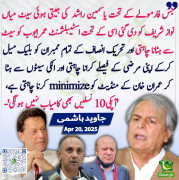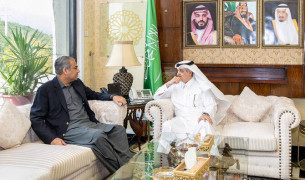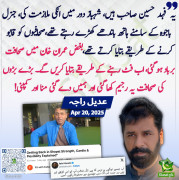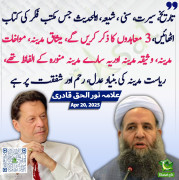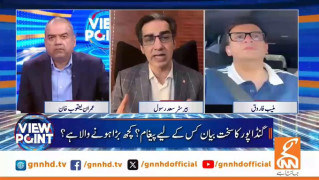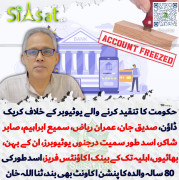The IMF’s Concerns About Pakistan’s HDI Amid Political and Economic Instability
The International Monetary Fund (IMF) evaluates countries based on economic performance, fiscal management, and human development indicators (HDI). Pakistan’s deteriorating governance, judicial inefficiency, and economic mismanagement are key concerns that impact both economic stability and human development.
1. Sham Democracy and Political Unrest
Pakistan’s political system has been characterized by weak democratic institutions, electoral manipulation, and suppression of opposition. A compromised democracy erodes investor confidence, discourages foreign direct investment (FDI), and increases political risk. When governments are unstable, policies lack continuity, discouraging long-term economic planning. This uncertainty negatively impacts HDI components such as education, healthcare, and income levels.
2. Broken Judicial System and Investor Confidence
A functioning judiciary is vital for enforcing contracts, protecting property rights, and ensuring economic fairness. Pakistan’s judicial system has been widely criticized for corruption, inefficiency, and political interference. Investors are reluctant to commit capital in an environment where legal disputes may not be resolved fairly. The inability to uphold contracts discourages industrial growth, limits job creation, and ultimately hampers social mobility and economic progress, further lowering Pakistan’s HDI.
3. Economic Mismanagement and IMF’s Reform Demands
The IMF has repeatedly stressed the need for Pakistan to reform its loss-making state-owned enterprises (SOEs) and reduce government sector pilferage. Instead of addressing inefficiencies, successive governments have relied on excessive indirect taxation, disproportionately burdening the middle and lower-income groups while allowing elites to evade taxes. This exacerbates economic inequality and limits access to essential services, which are crucial for improving HDI.
4. Freedom of Speech and Censorship
A government’s suppression of free speech, internet restrictions, and media censorship undermine social development. A free flow of information fosters innovation, entrepreneurship, and education, all of which are vital for improving HDI. By curbing freedom of expression, Pakistan’s government not only restricts democratic accountability but also limits intellectual growth and technological advancement.
5. The Impact of Terrorism on Stability and Development
Pakistan has long struggled with terrorism, which directly threatens economic stability and HDI. Persistent security threats deter investment, disrupt educational institutions, and strain healthcare systems. The government’s failure to address terrorism effectively has led to an environment of fear and instability, further reducing the country’s attractiveness for investors and businesses.
6. Political Fascism and the Risk of State Failure
When a government prioritizes authoritarian rule over democratic governance, it risks fostering political fascism, which has historically led to state failure. The concentration of power in a few hands, suppression of opposition, and manipulation of institutions weaken national resilience. Countries that have followed this trajectory—such as Venezuela and Zimbabwe—have suffered economic collapse, hyperinflation, and mass emigration, all of which severely impact HDI.
Conclusion: The IMF’s Perspective and Required Reforms
The IMF is primarily concerned with macroeconomic stability but also recognizes the importance of governance in sustaining long-term growth. Without meaningful reforms in governance, judicial accountability, and economic management, Pakistan’s HDI will continue to decline. The country must prioritize:
- Strengthening democratic institutions
- Reforming the judicial system to ensure contract enforcement
- Reducing economic leakages and corruption in SOEs
- Implementing fair taxation policies that do not overburden the poor
- Ensuring freedom of speech and media transparency
- Enhancing security measures to combat terrorism effectively
Failure to address these issues may lead to prolonged economic stagnation and social decline, making Pakistan increasingly reliant on external aid rather than sustainable development.
Source:
https://chat.openai.com








